Hijab Bill To Target Government Officials
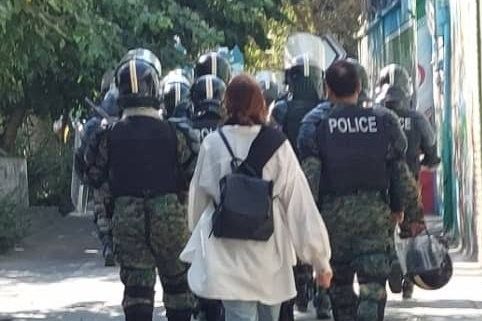
An Iranian lawmaker says the “Chastity and Hijab” bill will extend to government officials not supporting the crackdown on hijab refusers.

An Iranian lawmaker says the “Chastity and Hijab” bill will extend to government officials not supporting the crackdown on hijab refusers.
“Our main and most serious argument in this bill is to tackle professional hijab criminals”, Mehdi Baqeri, a member of the Judiciary Commission of the Iranian Parliament, told Rouydad24 news website.
He blamed governmental institutions in Iran for not meeting their obligations with regard to the implementation of compulsory hijab laws, adding that in case of the final ratification of the “Chastity and Hijab” bill, the officials negligent on their hijab duties will face legal measures.
According to the lawmaker, the bill will criminalize the government officials’ “shortcomings and inefficiencies” regarding hijab enforcement and they can even be fired from their jobs.
We have companies in Iran that promote “the culture of nudity” by producing “unconventional” and “vulgar” clothes, and there are people who sell these items, Bagheri added, urging the “severe and harsh” punishment of both groups.
In September, the Iranian parliament green lit a bill titled “Protection of Family Through Promotion of Hijab and Chastity Culture.” Initially introduced by the government and subsequently amended by parliamentary hardliners, the legislation outlined penalties, including substantial fines, for women diverging from the prescribed Islamic dress code.
Unexpectedly, the constitutionally mandated 12-member Guardian Council, wielding ultimate authority over legislation, rejected the bill. The Council cited formal deficiencies, including the ambiguity of specific terms in the text, prompting a call for parliamentary revisions.
While some speculate that the rejection stems from formal issues, others posit that the Guardian Council may be cautious about potential increased public discontent before the upcoming parliamentary elections in March.
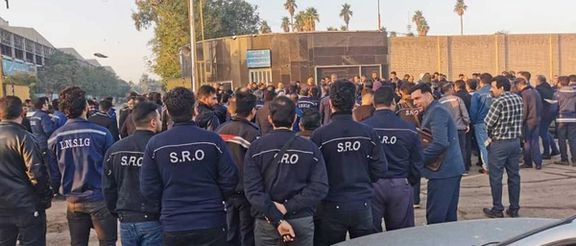
Iranian National Steel Industrial Group employees entered their sixth consecutive day of strike action on Thursday to obtain better working conditions.
The protest in Ahvaz has been sparked by dissatisfaction over the recent terminations of 21 employees and the failure to implement job classification plans.
A group of workers met with representatives from the Khuzestan province's General Department of Labor, the National Bank, and several other government agencies on Thursday according to the Free Union of Iranian Workers Telegram channel.
A list of demands to be raised at the meeting was published, which included "Removal of the corrupt CEO, removing the National Bank ownership, and workers' participation in the management of the company". However, no results have been released as of yet.
"The independent voice of Ahvaz National Steel Industrial Group workers" released a statement through the Free Union of Iranian Workers, prior to the scheduled meeting.
The authors of the statement said that in the last six days, “Authorities have been eyeing the workers' protest for their share of the company's loot”, and they are using “every means to create division and disrupt the strike” by making “empty promises” and exerting military and security pressure.
Moreover, they stated they would continue their strike as long as “authorities' threats and inaction continue”.
A further 17 employees were prohibited from working on the second day of the protests.
Iranian National Steel Industrial Group, previously controlled by Amir Mansour Aria Investment Company, has gone under private ownership following legal proceedings and the execution of Aria for embezzlement.
In the past few months, workers from a variety of industries, members of different guilds, and retirees have organized protests to oppose the current economic climate, met with crackdowns by security forces during several of the gatherings.
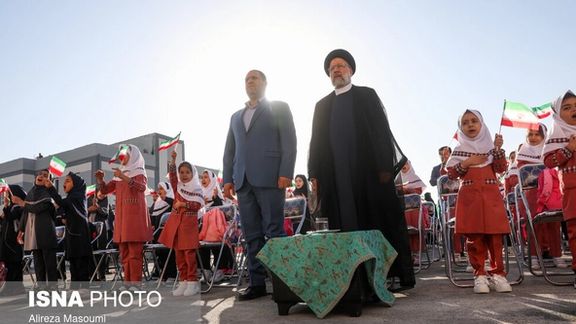
School teachers have claimed regime reforms have turned the country's schools into “religious and military bases”.
In an interview with Khabar online on Monday, teachers expressed concern about the plans to "shift schools away from their primary function", resulting in a "dead end" for children.
Teacher Mohammadreza Niknejad told Khabar Online that “authorities have failed in the education sector” as students do not accept today's school teachings. Furthermore, he added that ideological and religious studies have taken over most of the content of the school curriculum, even science, causing students to lose interest in the subject.
In line with the government's propaganda policies and the order of Supreme Leader Ali Khamenei the content of textbooks has changed in the last few years. In November, Reza Morad Sahraei, the Minister of Education, insisted on the need for gender-specific school curricula and confirmed changes in textbooks.
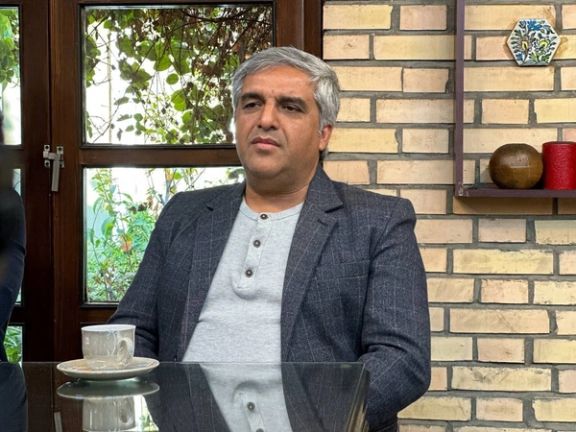
Sahraei also stressed the Islamic Republic's rejection of both the "Eastern perspective" and the feminist perspective, deeming the latter to be "deviant." A second teacher, Narges Malekzadeh, also noted the role students played in last year's protests and warned of future demonstrations: "If we do not maintain communication with students, they may become frustrated and protests may happen again."
Teachers staged a mass demonstration since the government did not take any tangible measures to identify and pursue the perpetrators, or to explain what was happening to their terrified parents and students. According to Amnesty International's report in April, since November 2022, thousands of schoolgirls have been poisoned and hospitalized in Iran. A trend that also continued at the beginning of this academic year.
In response to teachers' and students' protests, the government introduced a program of mass dismissals at schools known as the 'purge'. A tightening of security was also implemented around teacher recruitment. There is now a six-month selection period for teachers in non-government schools, in addition to the standard 15 days.
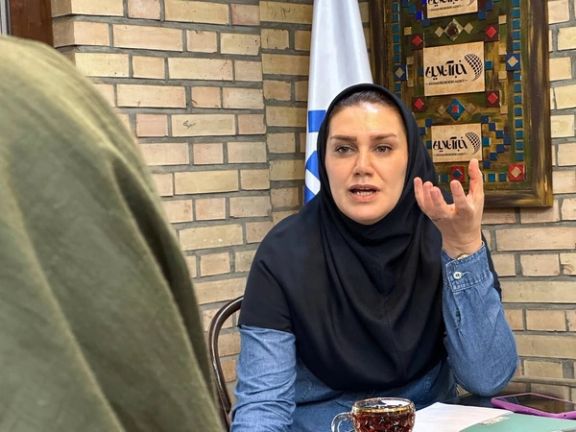
To compensate for the lost staff caused by the “purge”, the Education Ministry integrated religious teachers into the school system. Under a program called “Amin”, they recruited 21,000 seminary graduates to teach in 7 thousand schools. Ministers in President Ebrahim Raisi's administration have praised the "revolutionary" nature of the education ministry. In September, it was reported that Iran's Minister of Education had replaced over 20,000 principals.
The presence of religious teachers as part of the "Amin" program has become common at schools, however, students have a “negative attitude toward them and also they have a negative attitude towards students,” Malekzadeh explained.
In addition, the Education Ministry announced in December that seminary-affiliated schools will be established as part of the ministry's "Mosque, School, and Home" initiative.
In October, Russian President Vladimir Putin announced his intention to open Russian schools in Iran, though questions remain as to the nature of the proposed curriculums and their place in Iran's evermore religious Islamic curriculum.
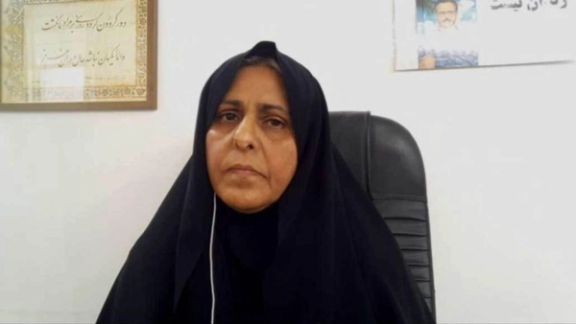
Fatemeh Sepehri, a political prisoner at Vakilabad Prison in Mashhad, is reportedly in critical condition, according to her lawyer, Khosrow Ali-Kordi.
Ali-Kordi warned, "Due to an elevated heart rate, my client can hardly speak, and her respiratory condition is a serious concern."
In a social media video, Sepehri's brother, Asghar Sepehri, revealed, "In Tuesday's meeting, my sister's heart rate was so high that speaking was difficult for her."
The family holds the Supreme Leader of the Islamic Republic responsible for the imprisonment of Sepehri, as emphasized by her mother in the video, stating that if anything happens to her, Ali Khamenei would be accountable.
Imprisoned since September 21, 2022 amid the Women, Life, Freedom protests, Sepehri faces severe charges, including "collaboration with hostile countries" resulting in a 10-year sentence, "conspiracy and collusion" leading to five years of imprisonment, "insulting the leadership" resulting in two years of imprisonment, and "propaganda against the system" leading to one year of imprisonment.
Despite a brief release in October 2022 for medical treatment, Sepehri was re-arrested three days later at her home in Mashhad by security forces.
She is the latest in a long line of prisoners such as rapper Toomaj Salehi and Nobel Laureate Narges Mohammadi, whose lives remain threatened in the confines of Iranian prisons.
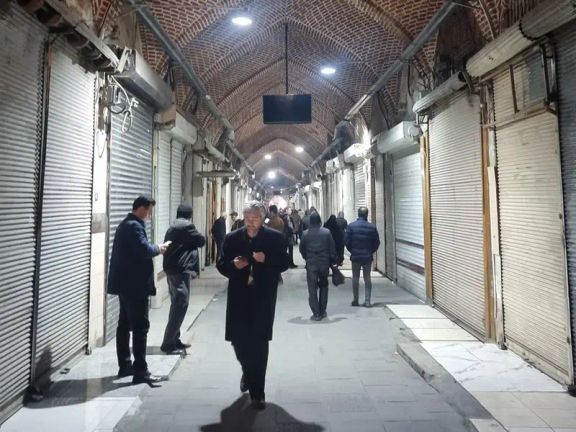
Talks between government representatives and security agencies aimed at resolving the ongoing strike by gold retailers in Tehran have failed to find a solution.
As of Wednesday, the widespread strike has entered its fifth day, with gold shops remaining closed in key cities such as Tehran, Mashhad, Karaj and Tabriz, protesting the government's tax policies affecting the gold sector.
Last week, the Tax Affairs Organization issued a statement warning about the obligation for gold jewelers to issue electronic invoices in a comprehensive system.
Subsequent to the announcement, news of a purported 25% tax on gold and jewelry sales circulated but was promptly denied.
After almost a week of strikes and protests, Ehsan Khandouzi, the Minister of Economy, labeled reactions to the government's new tax policies in the gold sector as "false news" and promised resolution in the coming days.
On Tuesday, information reached Iran International revealing that security agencies in Tehran are urging the reopening of gold trade units. However, market activists remain resolute in their determination to continue the strike until the end of the week.
Yusef Taqizadeh, the head of the Gold and Jewelry Union in Mashhad, reported on Tuesday that the government has temporarily reversed its decision to register the information of gold sellers and buyers in the comprehensive trade system. In response, Taqizadeh called for the cancellation of the strike in Mashhad and the reopening of gold shops by the shopkeepers.
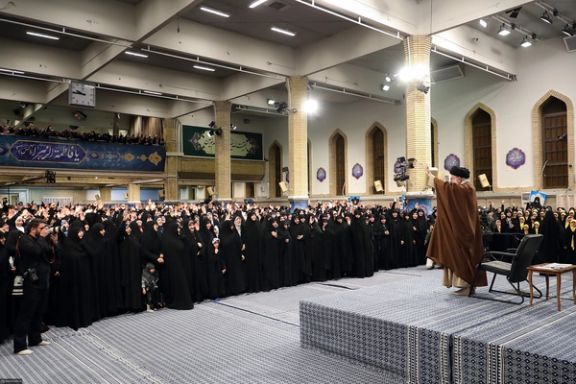
Iran's Supreme Leader has told an all female audience "you can play an important role in the elections" with voter turnout expected to be as low as 15 percent.
In a direct appeal for the upcoming March elections, Ali Khamenei said, "In the home, you play the most important role. Mothers can play a role in educating their children and spouses about the importance of being involved in the electoral process.”
Khamenei's hardliner supporters have used various methods to prevent other regime factions from competing in parliamentary and presidential elections since 2020.
The same tactic is being used for the March 1 legislative elections, and voters have lost interest in what they see as Islamic Republic's electoral machinations. Many do not see if going to the ballot box would make any difference to their futures.
Khamenei also stated that women have a greater capacity for details and a “better ability to recognize people and strategies ... The women are better able to identify the most qualified candidates than the men.”
In what seemed like a premeditated bid to engage a disenfranchised female population amidst the Women, Life, Freedom uprising as elections approach, the Iranian dictator added that, “A woman may hold any type of position, including managerial, governmental, and parliamentary positions. Meritocracy is the criterion for selection”.
However, cementing what he sees as women's main function, he added, “There is, however, a crucial requirement that women won’t be ‘deprived’ of that important and fundamental ‘feminine task’, i.e. housekeeping and childbearing ... Fortunately, there are some men who are willing to ‘assist women’, with housekeeping.”
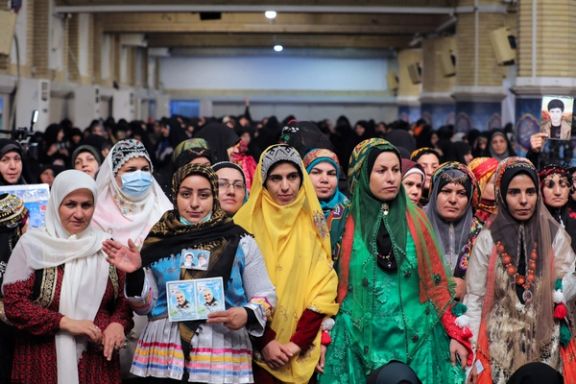
While defining “housekeeping” as a “woman's job” and saying some men “happily help women with that”, he also said, “We should not say housekeeping is women’s job.”
The inconsistencies present in just a few minutes of Khameni's speech may stem from his attempt to use modern concepts of equality to superficially appeal to women, his sole audience at Hosseiniyeh, after the 2022 women-led uprising sparked by the death in morality police custody of Mahsa Amini.
His emphasis on meritocracy comes at a time when, according to the Global Economic Forum's 2023 Global Gender Gap Report, Iran ranks 143rd out of 146 countries in terms of gender equality.
"Pakistan, Iran and Afghanistan are at the bottom of both the regional and global ranking tables," wrote the report.
Also in the Women’s Workplace Equality Index, published by the Council on Foreign Relations, Iran is among the 5 bottom-ranked countries regarding women’s workforce equality, alongside Sudan, Qatar, Syria and Yemen.
After praising women's progress in a variety of scientific and artistic fields, he emphasized the importance of revolution and Islamic values as decisive factors. In praise of the hijab, he said: “Hijab doesn’t mean discrimination and exclusion, but rather safety.”
In the meantime, the new division of the regime that enforces the hijab is violating the privacy of citizens by searching their personal belongings and imposing surveillance on them to take away their freedom of choice in how they dress.
Only in Iran and neighboring Taliban-controlled Afghanistan is wearing a hijab for women still mandatory.
The fact that these hijab enforcers are in plain clothes without permits or documents increases the possibility of criminals exploiting the situation. The harsh behavior of these agents has led to nationwide protests last year that lasted for months.
Mahsa Amini, 22, died in the custody of the morality police last September sparking the biggest uprising in recent history. A similar incident occurred this year with Armita Geravand, a 16-year-old student who was severely injured by Tehran's hijab police. She died while in hospital in October.